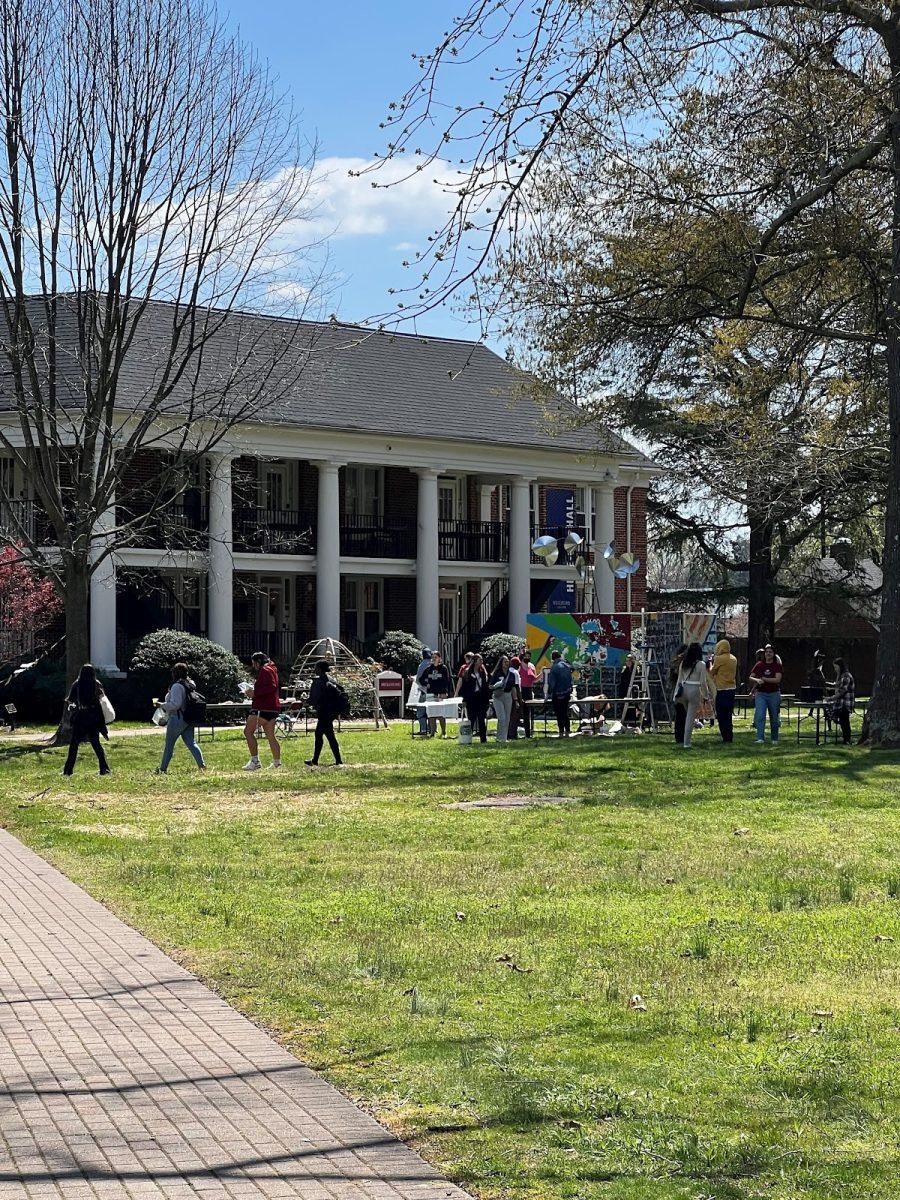Local non-profit Greensboro Beautiful recognized Kyle Dell, associate professor of political science, and Lynn Moseley, Dana professor of biology — along with Brooks Mullane of Greensboro Parks and Recreation and Ken Bridle of Piedmont Land Conservancy — for their work removing harmful invasive species from the Guilford College Woods.
According to Greensboro’s City Beautiful Coordinator Lynne Leonard, Greensboro Beautiful’s mission is to conserve and enhance the beauty and ecology of our community through public and private cooperation.
“We decided to cooperate because the Guilford College Woods are bordered by Price Park, a city-owned park,” Moseley said. “Animals and plants do not recognize the boundaries. It is all one ecosystem.”
That ecosystem is currently infected with a variety of invasive species.
“Invasive species replace native plants because they are more aggressive and produce more seeds,” said Moseley. “Insects and other species depend on native plants for food. If the insects have no food, then the birds have no insects, and the hawks have no birds to eat. It has a cascade effect on the whole ecosystem.”
She went on to say that both areas have the same problem with invasive species — such as akebia, multiflora rose, Chinese privet and autumn olive — so it was pointless to not work together. Price Park and the Guilford College Woods total over 100 acres of mostly forested land.
Dell pointed out the importance of stewardship in an email interview.
“We have a responsibility to act as good stewards of a precious and extremely rare gift,” Dell said. “They were given to us by those who went before us at the college, to be given by us to those who will come after us. The woods also provide a valuable resource for humans as a key green space for this part of the county.”
When humans are not good caretakers, they can have a tremendously detrimental effect on the woods.
“The invasive species were most likely introduced to the Guilford College Woods through humans,” said senior biology and education major Emily Egan. “In the areas of the woods where there is a lot of human impact, like around the lake or the main entrance of the woods, the invasive species are more prevalent. However, in deeper and undisturbed areas, the wood’s ecosystem tends to be intact.”
Dell and Moseley could not have begun the difficult process of cleaning up the woods alone.
“Student participation is critical,” Egan said. “These plants have no natural predators, and that is why they are flourishing. So if we do not take action, the problem will never be solved.”
Students who are interested in volunteering can get information on the Guilford Buzz or by contacting Moseley or Dell.
They have had four cleanups since January 2012, and plan to begin again this October.
“It is important for everyone to play a part in protecting the environment, from how we live and the choices we make on a daily basis to volunteering for community projects which protect and enhance our environment,” said Leonard. “It does good, and it feels good.”






